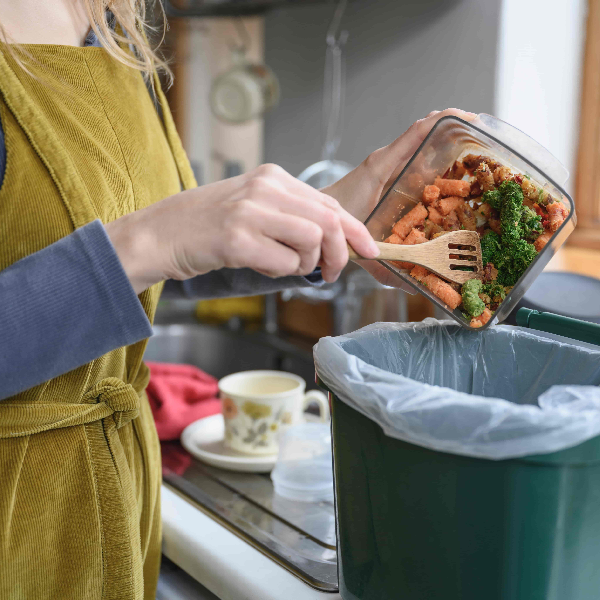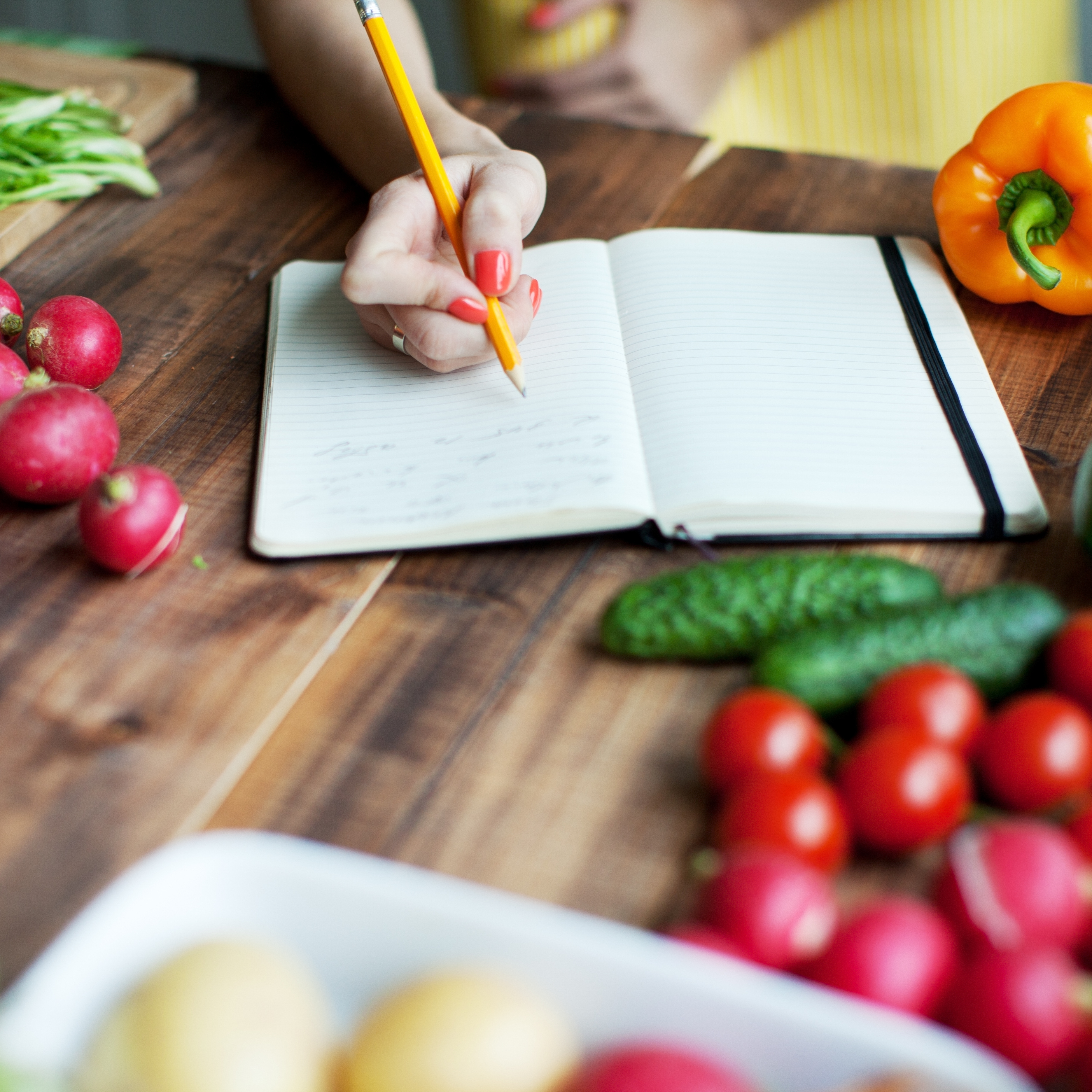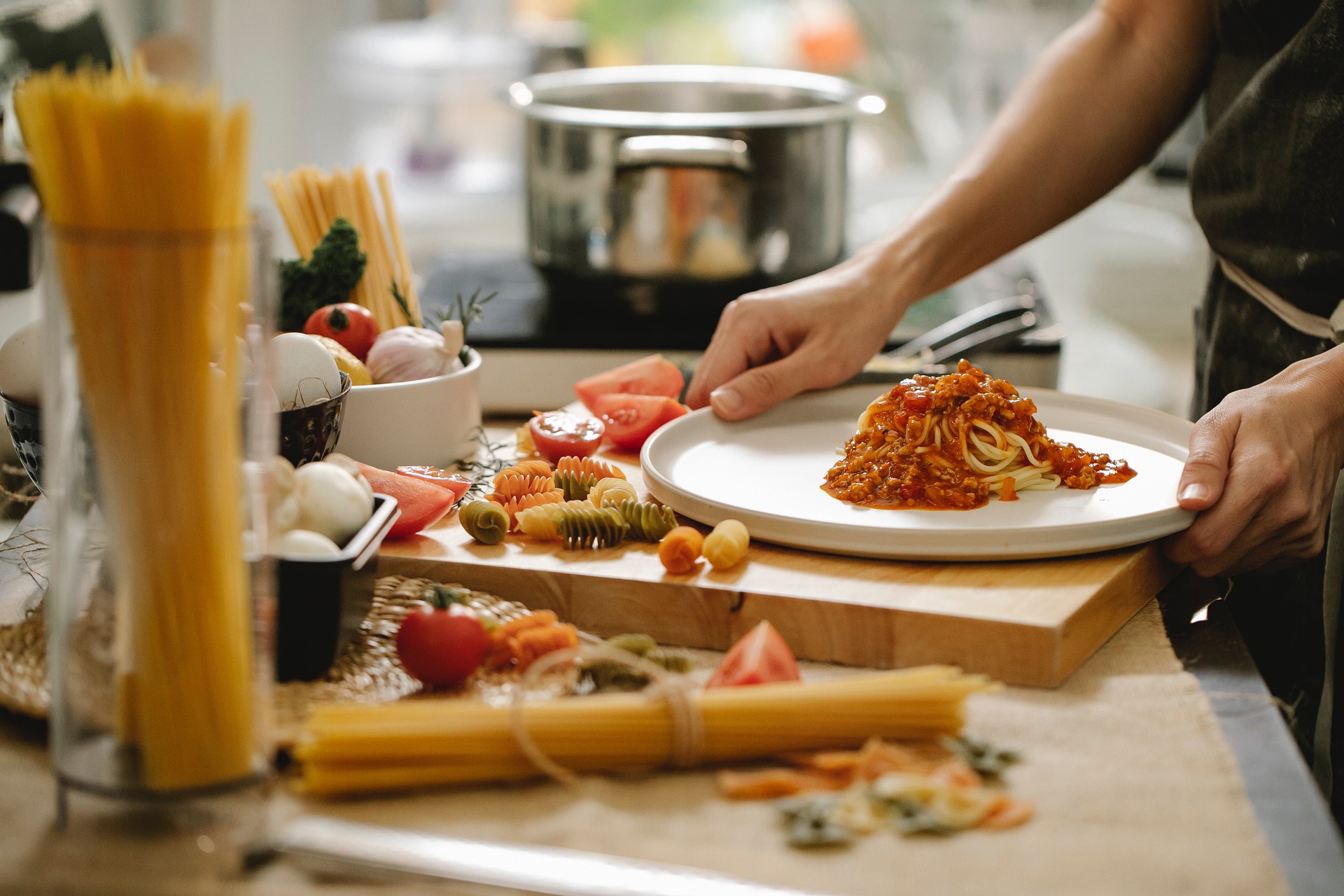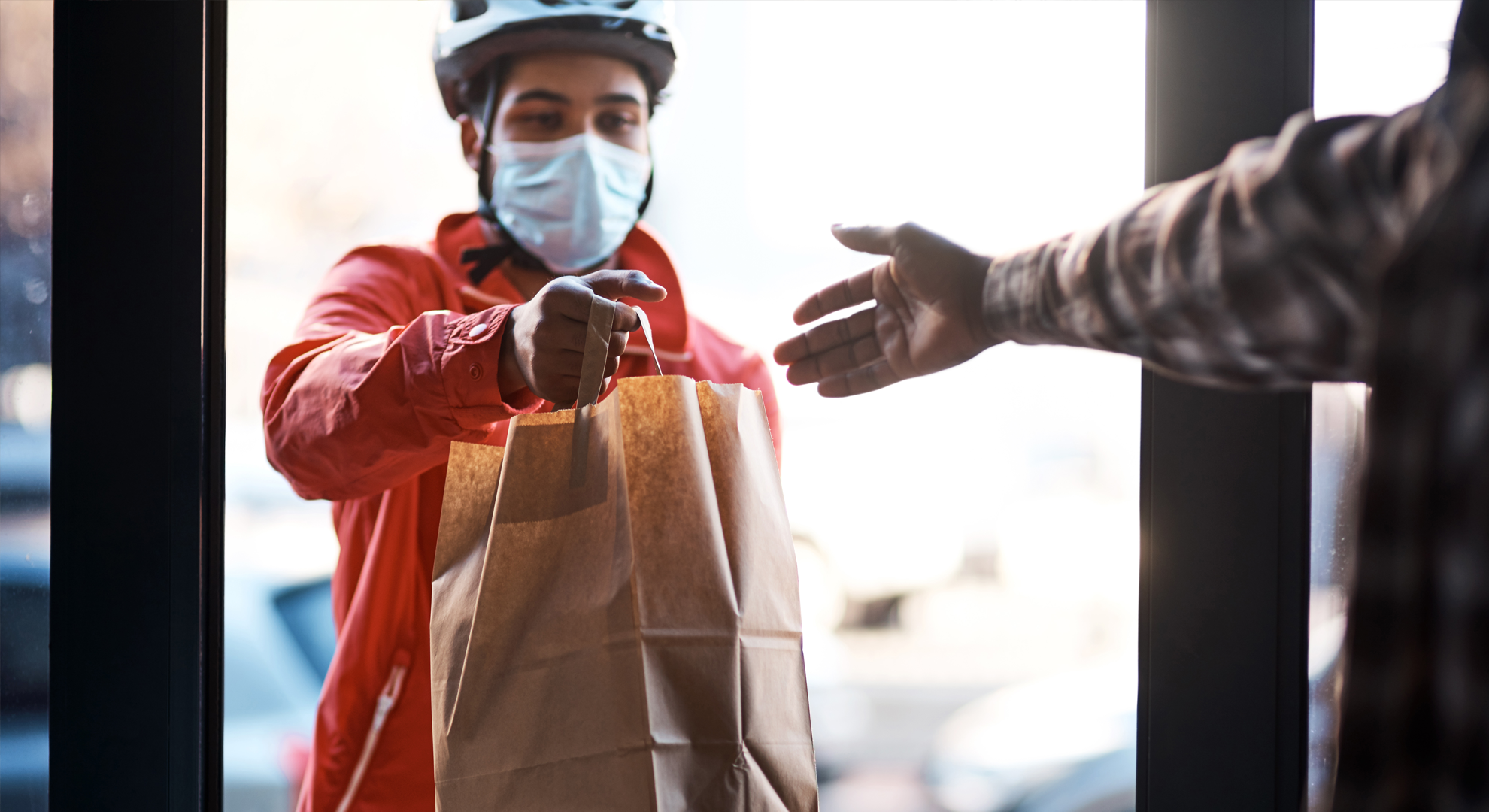
Saving food safely
Zero Waste Scotland is supporting businesses to redistribute food in a safe and hygienic way.
With restaurants, cafes and other commercial food businesses feeling the continued impact of coronavirus restrictions, disruption continues to be felt right across the supply chain as suppliers access to markets are likely to have changed for the produce they are growing and rearing.
We have developed a matchmaking service and redistribution advice, intended to help manage previously unforeseen gluts, where no other solution is in place.
Food waste is responsible for 22% of Scotland's carbon impact and preventing damaging greenhouse gases is an essential step in our fight against climate change.
Our below advice will take you through a few steps to understand more about food waste, redistribution and give you some advice on how to get started.
1. Matchmaking service
Our online matchmaking service aimed at rescuing food that would otherwise be wasted, by connecting suppliers with surplus produce and organisations that will benefit from it.
If you have good surplus food that’s at risk of going to waste, we can connect you with a redistribution organisation in your area to benefit those in your community.
Alternatively, email food.drink@zerowastescotland.org.uk or call us on 01786 433930. (9 am – 5 pm).
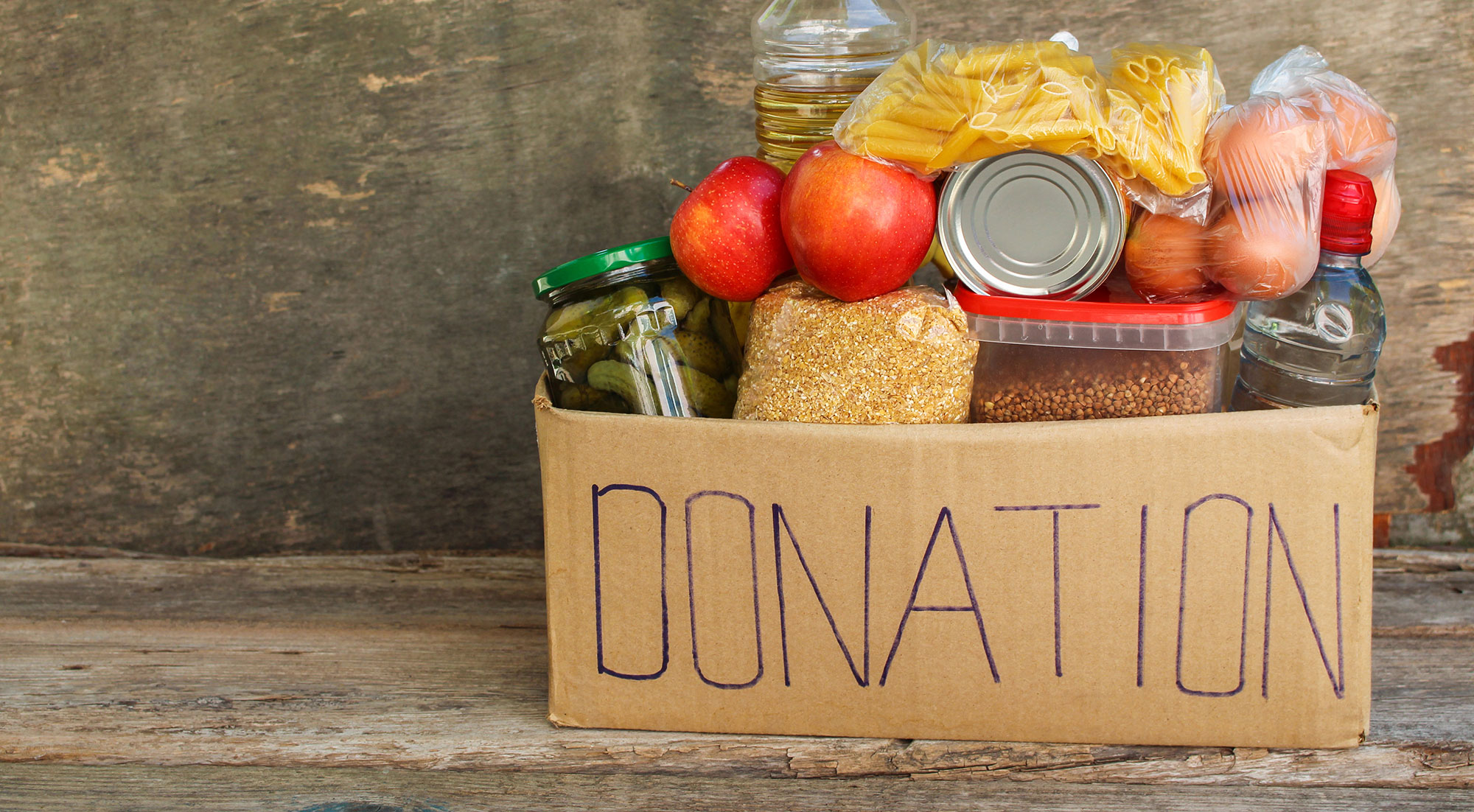
2. Labelling checklist
In many cases redistribution can provide a new life for food that’s past it’s ‘Best Before’ date.
To help businesses understand what food is suitable for redistribution, Food Standards Scotland has updated their guidance approved document providing advice on how long food is suitable for redistribution after the ‘Best Before’ date.
It outlines processes which food businesses and redistribution organisations can use to start redistributing.
Key requirements are also covered in the WRAP surplus food redistribution checklist.
3. Redistributing food during the coronavirus
To make sure that food can be redistributed safely, please follow the guidelines we have developed in partnership with Food Standards Scotland to address any concerns on food redistribution during this time.
Food Standards Scotland guidance states that there is no evidence to suggest transmission of COVID-19 occurs through food. Therefore, existing food safety management applies in relation to food redistribution, with an added emphasis on hygiene.
To be suitable for redistribution, all food must be fit for human consumption and compliant with food hygiene, labelling and safety legislation.
4. Redistribution Q&A
What can be redistributed?
Food can be redistributed provided that the relevant food safety regulations and food safety management system has been in place to ensure potential hazards have been adequately controlled throughout the life of the product. Food must also be clearly labelled with date label, allergen information, storage and cooking guidance.
The following foods are suitable for redistribution:
- Fresh and frozen fruit and vegetables;
- Fresh and frozen meat and fish;
- Dairy products;
- Chilled ready meals and packaged food;
- Frozen processed foods (e.g. chips and ready meals);
- Hot and cold beverages (excluding alcohol);
- Ambient food including jars and tins;
- Bakery products;
- Fresh sandwiches;
- Eggs
- Food with an expired best-before date, provided that it’s in good condition and fit for human consumption.
What can’t be redistributed?
Food can’t be redistributed if it poses a food safety risk to the consumer or doesn’t meet legal labelling requirements.
The following foods can’t be redistributed:
- Food with an expired use-by date (unless it has been frozen before the expiry date – see ‘below’ - Freezing food);
- Food that has not been kept at the appropriate temperature;
- Food that has damaged packaging with a possibility of contamination;
- Food that lacks information on allergens. For more information visit Food Standards Scotland’s allergen guidance;
- Food that has been served to a customer;
- Food that has been in direct contact with consumers (e.g. buffet-type service).
Redistributing frozen food – what you need to know
Freezing can act as a ‘pause button’ prior to the best-before or use-by dates passing. The organisation carrying out the freezing must:
- Ensure that the food is in an acceptable condition and suitable for freezing (e.g. as indicated by manufacturer’s instructions);
- Ensure the food is frozen through to the core;
- Supply information to the receiving organisation that relates to the food and its freezing – including information about when the product was frozen, and instructions for defrosting and cooking;
- Remove the original use-by date on the food label (if the product had one) and add a new best-before date;
- Updated storage and cooking instructions should be applied, explaining clearly that food should be thawed in a fridge and used within 24 hours.
Food operations storing relabelled food should have systems in place to record when the food was frozen so that, if inspected by local authority food safety officers, they can demonstrate that such food is safe
Best before and use-by dates – what you need to know
- Only donate food before it reaches the use-by date, unless it has gone through a safe cooking or freezing process before the use-by date expired. Chilled food that is past its use-by date should never be presented to any person or organisation for consumption;
- Label any food that does not have a best-before or use-by date (e.g. surplus cooked food), stating what it is, when it was donated, when it should be used by and if it is safe to reheat;
- Food can be frozen up to and including the use-by date. How long it can be frozen for is a quality issue rather than a food safety one;
- If freezing food, ensure that it is in an acceptable condition, is frozen all the way through, is labelled appropriately to confirm when it was frozen, and includes instructions for defrosting and cooking.
Ultimately, the food should be treated as if it was being sold. If you have any questions about food safety legislation then refer to Food Standards Scotland.
The newly updated redistribution labelling guidance is also available from WRAP.
Understanding the difference between a best-before and a use-by date
- Make sure that all food you are redistributing is within the use-by date. Use-by labels indicate the date by which the food must be eaten. These dates are used on perishable foods that go off quickly and refer to food safety. After this date, food should not be used even if it looks and smells fine as it may contain harmful bacteria;
- A best-before date is about food quality rather than food safety, so after this date has passed, the food will be safe to eat, but its flavour, colour or texture might begin to deteriorate.
Questions to ask of the recipient
| General Information | What are the contact details? What is the scale of operation? |
| Surplus Food | What quantity and types of food are you able to handle, store and redistribute? Do you have the ability and response time to deal with products with a shorter shelf life? |
| Storage, transportation and pick up | How and when will the transfer happen? Does the partner organisation have its own vehicle? Will a personal vehicle be used for the transfer or will it be picked up by another method? What size load can be handled? Will the vehicle used for the transfer be equipped with refrigerated storage space or isothermal boxes? If the food is to be delivered by your own means, where is it to be delivered? How and when will the collection of food happen? |
| Other information | Do you carry out food safety and hygiene training for your staff? Do you have capacity to take care of the hygiene and safety aspects? |
Storing food for redistribution – what to do
You should package your donation in sealed, food-safe bags or containers. The surplus food should be clearly marked. All donated surplus food must be labelled with your organisation’s name, a description of the item, the best-before or use-by date and potential allergens.
The surplus food must be kept away from any food waste. While storing chilled food in the fridge, set your fridge at between 3 and 5˚C to make sure that food is kept cold enough. Your freezer temperature should be at approx. -18˚C.
UK Food and Drink Surplus Network
The UK Food Surplus Network, developed by the Waste and Resources Action Programme (WRAP), identifies redistribution organisations who can help, including local organisations and those who can take surplus crops. If you are a redistributor or business able to receive surplus food, you can sign up by visiting the page.
Funding opportunities
If you are a third-sector organisation, the following funds may be able to provide support:
- Dedicated Scottish Government funding specifically in response to the Coronavirus pandemic;
- National Lottery Awards;
- Charities Aid Foundation Coronavirus Emergency Fund;
- Tesco Bags of Help COVID-19 Communities Fund;
- FareShare’s ‘Surplus with Purpose’ fund.
Surplus food redistribution matchmaking disclaimer
Zero Waste Scotland is committed to reducing food waste and whilst food waste prevention at source should be the key priority, food redistribution is the next best alternative if surplus food still arises. Companies, charities and individuals can all benefit from the redistribution of surplus food. There are many organisations that will help match your surplus food with people or businesses in your community that can make use of it - read more about some of the different platforms. At Zero Waste Scotland, we have developed a Food Redistribution Guidance Document in conjunction with Food Standards Scotland to tell you all you need to know about how to redistribute surplus food. From food safety considerations, to how to identify surplus food, this guide will lead you through the process. Zero Waste Scotland provides a 'matchmaking' service with the goal to link producers with surplus food to organisations, including charities and community groups that would directly benefit from the redistribution of surplus food.
For the purposes of the surplus food redistribution programme, Zero Waste Scotland operates a not-for profit facilitation service. It is not operating as a food business operator (FBO) under UK law and will under no circumstances receive any surplus food for redistribution. The supply of any surplus food shall be subject to separate agreement as between the food producer ("FBO") and the receiving company, charity or individual (the "Receiving Entity"). Zero Waste Scotland does not accept responsibility for the outcome of any redistribution arrangement made between the FBO and a Receiving Entity and does not endorse any particular organisation. To the maximum extent provided by law, Zero Waste Scotland hereby excludes all legal liability for any claims, demands, actions, costs, expenses, losses and damages arising from a claim from an FBO, a Receiving Entity or any third party in respect of the supply of surplus food.
The guidance or activities around the redistribution of surplus food does not change or replace the normal legal requirements that apply to the provision of food. A food business, which could be any undertaking, whether for profit or not and whether public or private, carrying out any activities related to any stage of food production, processing or distribution, is subject to food law.



